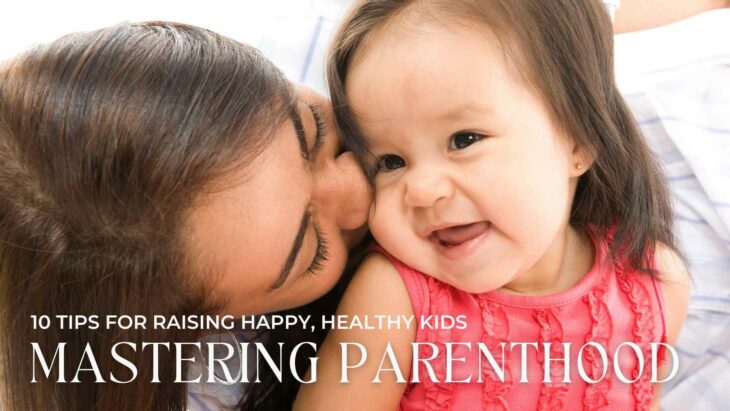Wouldn’t it be great if parenthood came with an instruction manual? Unfortunately, no such handy guide exists, so all any mom can do is her best — embracing a journey filled with joys, challenges and sometimes painful growth. Here are 10 strategies to help you and your child not just cope, but thrive:
1. SHOW UNCONDITIONAL LOVE
Make sure your child knows he or she is loved, valued and accepted unconditionally, regardless of successes or failures.
2. SET CLEAR BOUNDARIES
Establishing clear, consistent rules and consequences is crucial for a healthy parent-child relationship. Boundaries give children a sense of security and help them understand what is expected of them.

3. PRACTICE ACTIVE LISTENING
Sometimes a child just needs to be heard without judgment. Make a point of just listening, giving your child your undivided attention and validating his or her feelings. This fosters open communication and strengthens your bond.
4. LEAD BY EXAMPLE
Children learn by watching their parents and other adults they respect, so be a role model worth emulating by showing kindness, respect, empathy and resilience.
5. ENCOURAGE INDEPENDENCE
We all want our children to be confident and self-reliant, which starts by letting them take age-appropriate risks and make decisions. Encouraging them to do and think for themselves helps them grow into well-adjusted, resilient adults.
6. PROMOTE A GROWTH MINDSET
Every child has on and off days, so make sure to praise effort and perseverance rather than innate abilities. Teach your child that failure is a natural part of learning and that with practice and determination, he or she will improve while also building character.

7. CARVE OUT QUALITY TIME
Make time for regular one-on-one activities with your child to reinforce your bond and create lasting memories. Whether it’s reading together, playing games or going for walks, quality time is always a good investment.
8. TEACH LIFE SKILLS
Life’s daily difficulties, whether big or small, present an ideal opportunity to tach your child skills like problem-solving, decision-making, time management and emotional regulation. These skills will prove invaluable as they face ever more complex problems and challenges.
9. FOSTER A POSITIVE ENVIRONMENT
Few things are better for children’s wellbeing than filling their home environment with love and support. Celebrate your child’s successes, no matter how small, and offer encouragement during hard times.
10. PRACTICE SELF-CARE
Moms, prioritizing your own physical, emotional and mental wellbeing is not selfish; it’s essential. Parenting can be demanding, and taking time for yourself ensures you have the energy and patience to be the parent your child needs and deserves.

Remember, there’s no one-size-fits-all approach to parenting, and it’s OK to make mistakes. What matters most is that you approach parenting with love, patience and a willingness to learn and grow alongside your child.


